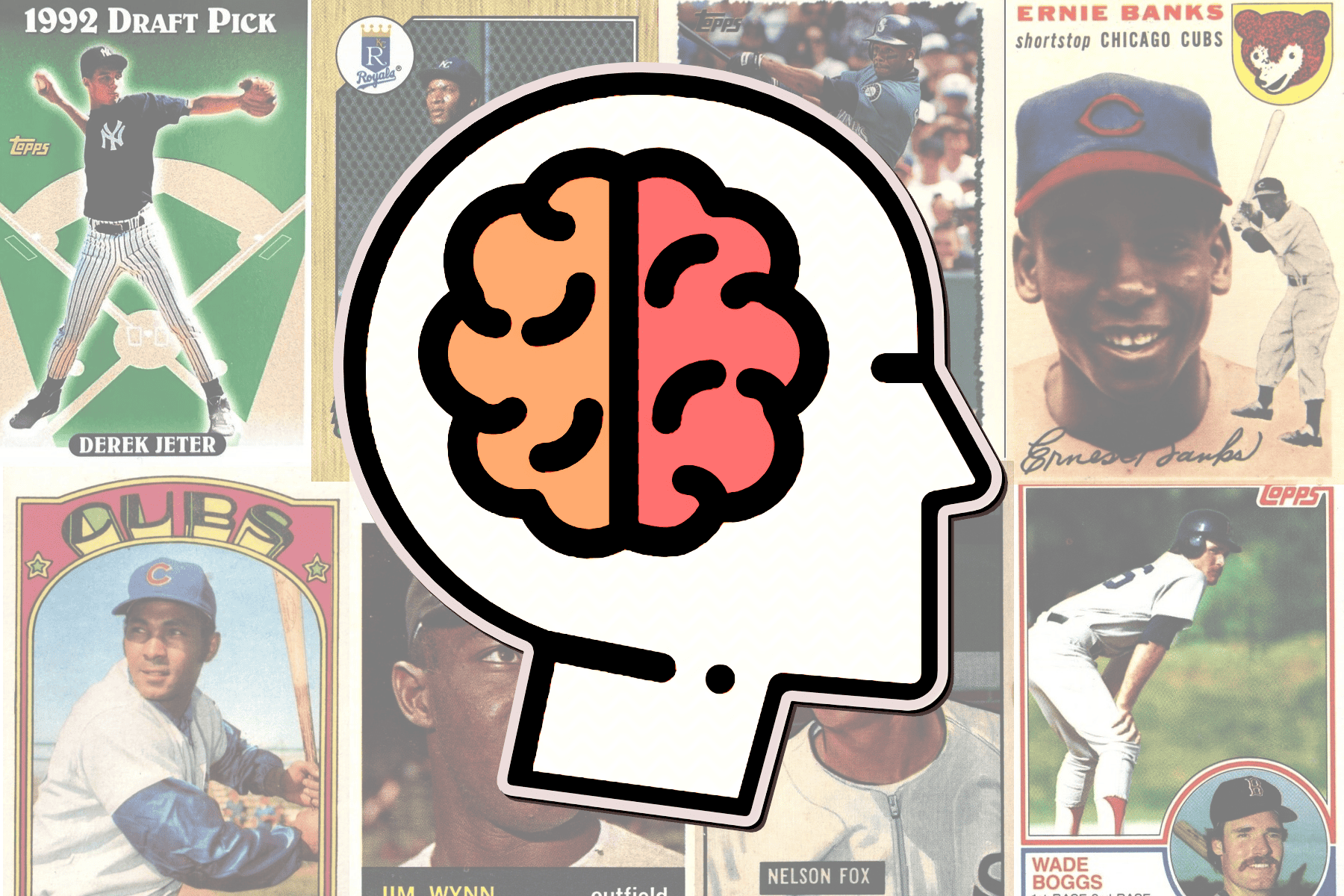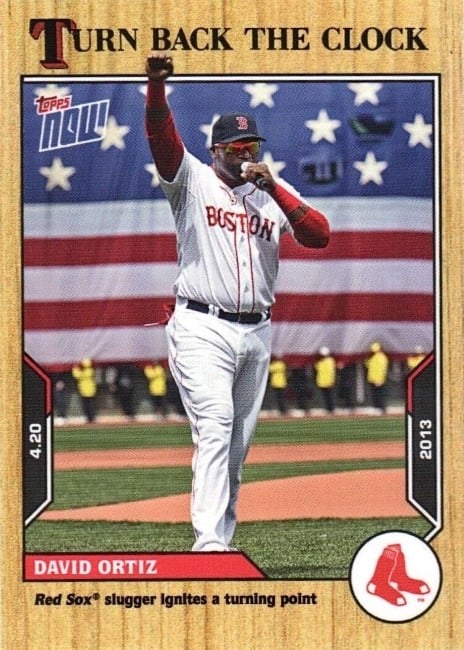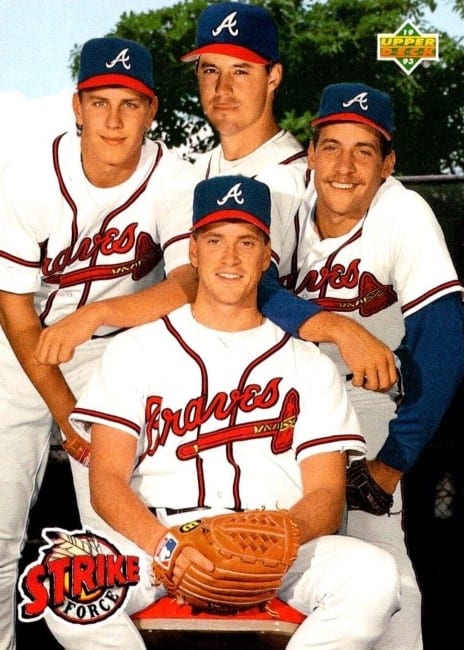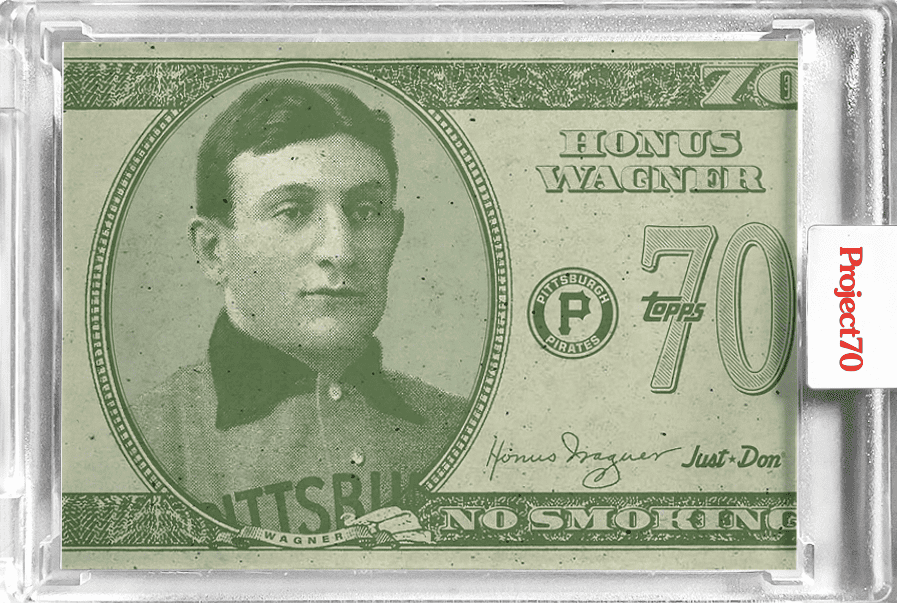
Why do we love collecting baseball cards? It seems like a simple question, with a simple answer. Maybe you love the Mets, or you went to minor league games as a kid. Maybe you played Little League. Many of us can point to the moments and reasons we love baseball. This has naturally led to a lifelong pursuit of baseball card collecting.
However, there is another level. Scientists have studied myriad topics related to the psychology of collecting. They’ve focused on everything from the all-important emotional connections to the chemical and behavioral reactions you have around your collection. Understanding the psychology of collecting will help you get the most out of your collection, and make smart choices about what you collect and how you enjoy it.
This article explores the psychology behind baseball card collecting, delving into the emotional connection collectors form with their cards and the various psychological factors that fuel this enduring hobby.
Psychology of Collecting 101
Reward Systems and Dopamine

One of the primary drivers of card collecting is the thrill of the hunt. The act of searching for specific cards, ripping packs, attending card shows, or striking deals online activates the brain’s reward system. The anticipation of finding a coveted card triggers the release of dopamine, a neurotransmitter associated with enjoyment and motivation. Each successful acquisition reinforces this positive feedback loop, keeping collectors motivated to continue the chase.
This concept aligns with the theory of operant conditioning. The theory proposes that behaviors followed by positive reinforcement are more likely to be repeated. In the psychology of collecting, card acquisition strengthens the association between collecting and feelings of reward, making the hobby increasingly attractive.
Baseball card companies know this. They release cards to appeal to all types of collectors and their budgets. Consider the 2024 Topps Series 1 set. In addition to 350 base cards, there are 28 parallels, over 20 inserts and over 20 relic and autograph sets. These range from very attainable odds like 1:2 packs to multiple 1/1s. The point is: There is a lot to chase, and whatever any collector finds rewarding, it’s likely to be available. And every time a new set or series drops, the chase begins anew.
Ownership and Self-Esteem
The act of collecting and owning baseball cards can also boost self-esteem and feelings of accomplishment. Psychologists have identified the concept of possession identity. It suggests that people derive a sense of self from the things they own. A meticulously curated card collection becomes a tangible representation of the collector’s knowledge, dedication, and passion for the game. Owning rare or valuable cards further amplifies this effect because collectors derive a sense of pride from owning unique or coveted items.
This psychological principle is further reinforced by social comparison theory. This states that people evaluate themselves by comparing their possessions and achievements to others. Collectors often share their collections with others, both online and in person, seeking validation and admiration. Recognition from fellow collectors strengthens the connection between ownership and self-worth.
Nostalgia and Emotional Connection

For many collectors, baseball cards serve as powerful nostalgia triggers. Research suggests that nostalgia can evoke positive emotions and a sense of comfort by reconnecting us with cherished memories from the past. These positive emotions associated with past experiences create a strong emotional connection with the cards themselves.
Furthermore, the mere-exposure effect suggests that repeated exposure to stimuli can lead to increased liking. For collectors who grew up surrounded by baseball cards, the familiar sights and sounds associated with the hobby can be intrinsically comforting and create a positive emotional response.
Completion, Order & Achievement in Collecting
The pursuit of completing a set or collection taps into our inherent desire for order and accomplishment. According to one researcher, humans have a fundamental need for closure, which involves seeking a sense of completion or ending. Completing a baseball card set fulfills this need, providing a sense of satisfaction and accomplishment.
The act of meticulously organizing and categorizing cards also aligns with the concept of construal-level theory. This is a theory that suggests people categorize information at different levels of abstraction. Collecting allows individuals to impose order on the world around them, organizing cards by player, team, or year. This sense of control and organization can be highly rewarding for collectors.
Social Glue: Community and Belonging

Baseball card collecting doesn’t have to be a solitary pursuit. The hobby fosters a strong sense of community, connecting individuals who share a passion for the game and its history. Online forums, card shows, and local clubs provide a platform for collectors to share their knowledge, experiences, and prized possessions. This sense of belonging and shared interest combats feelings of isolation and provides a valuable social outlet.
The concept of social identity theory helps explain this phenomenon. This theory suggests that people derive a sense of self from the groups they belong to. By identifying as a baseball card collector, individuals connect with a like-minded community, fostering a sense of belonging and shared identity.
Psychology of Collecting and Monetary Gains
The Gambler’s Fallacy
For some collectors, the potential financial gain associated with rare cards adds another layer of intrigue to the hobby. The allure of a valuable card investment can be powerful, activating the reward system and the desire for potential future gains. However, it’s important to distinguish between calculated investment strategies and the gambler’s fallacy.
The gambler’s fallacy is a cognitive bias that leads people to believe that a random event is more or less likely to occur after a streak of opposite outcomes. In baseball, you will often hear that a slumping player is “due” for a hit. In card collecting, this can manifest as the belief that a pack of cards is more likely to contain a valuable card after a string of duds. This fallacy can lead to impulsive spending and disappointment, overshadowing the intrinsic enjoyment of collecting.
Making Sound Investments

While some cards can appreciate significantly in value, it’s essential to approach baseball card collecting as a long-term investment with inherent risks. A deep understanding of the market, player statistics, and card grading is crucial for making informed investment decisions.
Here, collectors can benefit from the concept of bounded rationality, which suggests that decision-making is often influenced by limited information and cognitive biases. Researching market trends, consulting with experts, and avoiding impulsive purchases based on the gambler’s fallacy can help collectors make sound investment choices within the hobby.
Using the Psychology of Collecting to Your Advantage
The psychology of baseball card collecting is multifaceted, encompassing various emotions, motivations, and cognitive processes. The thrill of the hunt, the satisfaction of completion, the emotional connection to the past, and the sense of community all contribute to the enduring allure of this hobby. Understanding these psychological factors allows collectors to appreciate the depth of their passion and also make informed decisions about their collecting journey.
However, it’s important to keep in mind that the specific psychological factors that drive card collecting can vary depending on the individual. Some collectors may be more motivated by the investment potential. Others may prioritize the social aspects or the emotional connection to the cards.
Whether driven by the pursuit of rare cards, the joy of completing a set, or simply the nostalgia associated with the hobby, baseball card collecting offers a unique and fulfilling way to connect with the game and its history.




